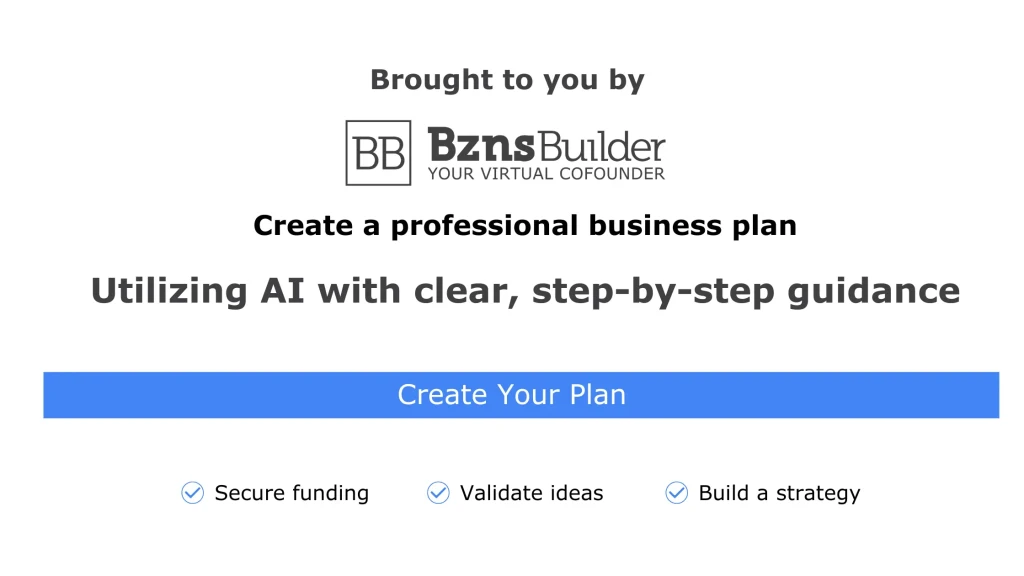Managing Small Business Finances: How to Manage Them Effectively

Managing small business finances is one of the most critical tasks for any entrepreneur. Whether you’re a seasoned business owner or just starting, understanding and optimizing your financial performance can mean the difference between growth and stagnation. This comprehensive guide will help you navigate the essential aspects of managing small business finances effectively. With tools like BznsBuilder, the process becomes simpler, faster, and more reliable.
How Often Do You Review Your Financial Performance?
How often do you sit down to review your financial performance? Is it once a month? Quarterly? Annually? Or perhaps, hardly at all?
If you don’t conduct a financial review at least monthly, you’re missing out on valuable insights into your business’s performance. Regular financial reviews help you identify trends, spot issues early, and make informed decisions. Without this habit, growth can feel perpetually out of reach.
The good news? Strengthening your financial skills is entirely possible—even if you’re not naturally inclined towards numbers. Platforms like BznsBuilder make financial reviews intuitive by providing you with tools to analyze data, forecast trends, and set actionable goals. Let’s dive into key topics every small business owner should master.
Everything You Need to Know About Cash Flow
Cash flow is the lifeblood of your business. Without it, even the most profitable companies can face financial struggles. Here’s what you need to understand:
- Why Cash Flow Matters: Cash flow determines your ability to pay expenses, invest in growth, and handle unexpected challenges.
- Creating a Cash Flow Forecast: Learn how to project your income and expenses to predict your cash flow. BznsBuilder’s financial forecasting tools can automate this process, saving you time and improving accuracy.
- Key Terms to Know: Burn rate (how quickly you spend cash) and cash runway (how long your cash will last) are critical metrics to track.
Dig Deeper: Cash flow basics for small businesses.
How to Conduct a Financial Performance Review
Staying on top of your financial performance means regularly reviewing your financial statements and comparing actual results to your forecasts. Here’s how:
- Analyze Financial Statements: Focus on your income statement, balance sheet, and cash flow statement.
- Compare Forecasts to Actual Results: Identify variances and adjust your plans accordingly. With BznsBuilder’s analysis tools, you can easily compare projected and actual results in real-time.
- Set Financial Goals: Use insights from your review to set realistic, actionable goals.
Dig Deeper: How to analyze your financial performance in 4 steps.
How to Minimize Business Costs
Every business, regardless of size, can benefit from cutting unnecessary costs. Here are some strategies to reduce expenses:
- Evaluate Fixed and Variable Costs: Understand which costs are essential and which can be optimized.
- Negotiate with Suppliers: Regularly renegotiate contracts to secure better deals.
- Leverage Technology: Use automation tools like BznsBuilder to streamline operations and reduce manual labor costs.
Dig Deeper: 27 cost-cutting tips for small businesses.
Understand Your Business Metrics
Tracking the right business metrics is critical to understanding your company’s health. Focus on these key data points:
- Revenue Growth: How much is your income increasing over time?
- Profit Margins: What percentage of revenue is left after expenses?
- Customer Acquisition Costs: How much does it cost to gain a new customer?
With BznsBuilder’s dashboard, you can monitor these metrics in one place, providing a clear view of your business’s performance.
Dig Deeper: 12 business metrics that you need to know.
Learn the Basics of Budgeting and Forecasting
Budgeting and forecasting are foundational to financial management. If you’re new to these concepts, start here:
- Setting Up Your Finances: Map startup costs, open a business bank account, and establish accounting and payroll systems.
- Creating Budgets: Identify income sources and allocate funds to essential categories. BznsBuilder’s budgeting features make it easy to allocate resources efficiently.
- Building Financial Forecasts: Predict future revenues and expenses to guide decision-making. BznsBuilder’s AI-powered tools simplify this process, ensuring precision and actionable insights.
Dig Deeper: Setting up and organizing business finances.
How to Create a Financial Plan and Forecasts
Many small business owners feel intimidated by creating financial plans. However, it doesn’t take a business degree to craft accurate financial statements. Here’s how:
- Start Simple: Focus on key elements like revenue, expenses, and profit.
- Use Tools: Leverage platforms like BznsBuilder to simplify calculations and ensure accuracy.
- Iterate: Regularly update your financial plan as your business evolves.
Dig Deeper: How to write a small business financial plan.
Apply Your Financial Knowledge to Grow Your Business
Mastering your finances doesn’t just keep your business afloat—it helps it thrive. By understanding your financial health, you can:
- Identify Opportunities: Spot trends that signal growth potential.
- Navigate Challenges: Develop contingency plans for financial hiccups.
- Expand Knowledge: Apply financial insights to other areas, like strategy and goal-setting.
BznsBuilder empowers you to turn financial insights into actionable strategies, making growth more attainable than ever. Plus, you can apply your financial knowledge to other areas of your business. Check out additional guides to elevate your business:
- Create a Business Strategy: Build a roadmap to success.
- Manage During a Crisis: Learn to adapt in challenging times.
- Set Business Goals: Define and achieve meaningful objectives.
- Sell Your Business: Prepare for a successful exit.
By consistently managing small business finances with tools like BznsBuilder, you’ll not only ensure stability but also position your business for long-term success. Start implementing these practices today to see the difference they make in your entrepreneurial journey.







